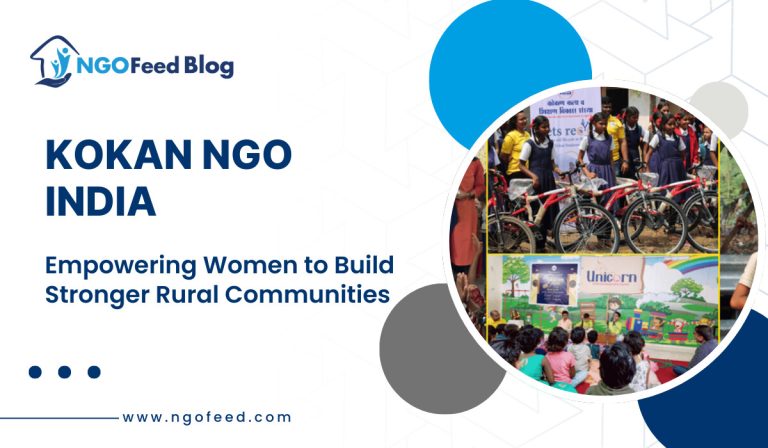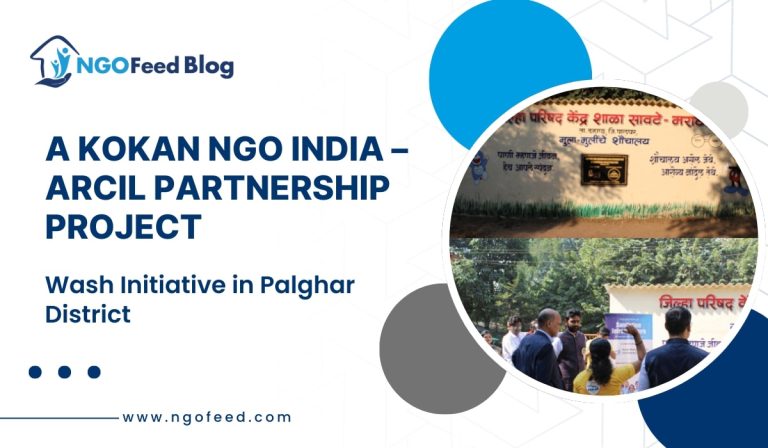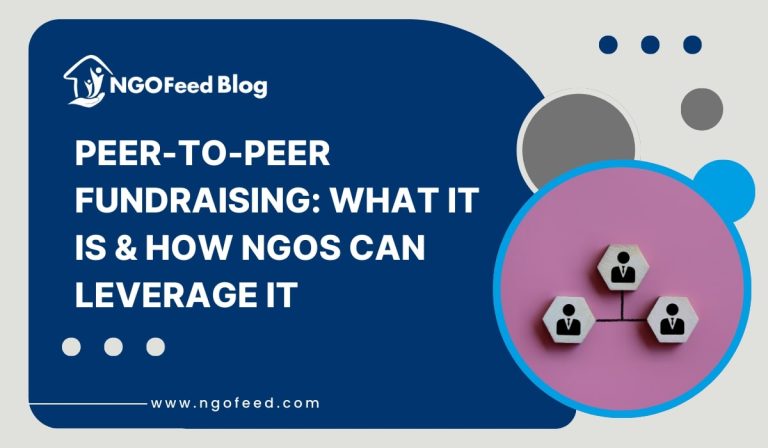How to apply for CSR Funding in India: CSR Funding is Corporate Social Responsibility funding. CSR funding has become the savior for many NGOs who wish to create a positive difference in society. Thus, the partnership between corporations and non-governmental organizations is an intriguing proposition at a time when companies are actively taking up social responsibility. However, how can NGOs harness these opportunities, and How does CSR funding benefit all NGOs?
This article keenly provides diverse and practical insights that can guide an organization that aims to secure CSR funding in India to make an impact. CSR policies guarantee that businesses’ role in social improvement is also paid great attention to; billions of dollars are allocated annually for effective projects. But the problem is the process—how does one get one’s cause noted amid competing solicitation applications and petitions? Here, we will demystify the art of writing a good CSR proposal, approaching the right corporates, and how to turn your idea into a funded project. Are you ready to get from mission to action? Read on to learn how!
Table of Contents
Understanding CSR in India
CSR in India was enacted by the Companies Act, 2013 which requires some kinds of companies to spend part of their profits for CSR activities. Today, India is among the few countries in the world where CSR has been put into a legal framework through this piece of legislation to compel companies to participate in positive societal change.
The Features of CSR Under the Companies Act, 2013
Eligibility Criteria for Companies: Those firms that reach any of the following criteria are mandated to practice CSR:
- The amount of ₹500 crore or more in net worth.
- Provides turnover of ₹ 1000 crore annually or more.
- The company, or the net profit of ₹5 crore or more during the financial year.
Also Read: What is a CSR fund?
CSR Spending Requirement: Business entities of the year must spend 0.25% of their average amount of net profit for the past three years for CSR expenditure.
Focus Areas for CSR Activities: CSR activities should be the activities listed under Schedule VII of the Companies Act. These include:
- Education as well as skills training
- Health and sanitation
- Environmental sustainability
- Rural development
- Promoting gender equality
Eligibility Criteria for NGOs
To receive CSR funding, NGOs must:
- Be a charitable trust society or a Section 8 company registered under Indian laws.
- have at least 3 years of a documented track record of working in the social impact sectors.
- Be registered with the NGO DARPAN portal, which is the government’s online CSR partnerships registration portal.
Also Read: YouTube for Nonprofit Program
Impact of CSR Legislation
CSR in India has directed billions of rupees for social development activities after its implementation and its novelty has created positive changes in different areas of India. Thus, gaining knowledge of legal conditions and CSR objectives is the first stage for NGOs to occupy a proper place and receive funds.
An understanding of these basics enables NGOs to synchronize with corporate goals that will serve as the framework for effective CSR partnerships.
What are the benefits of CSR funding for NGOs?
Advantages of CSR Funding for NGOs
CSR funding is a vast area of potential for NGOs as it grants them the additional resources to expand their reach and complete their missions. Here are the key benefits of CSR funding for NGOs:
1. Survey of the Literature: Financial Stability and Economic Growth
CSR funding means that NGOs are always assured of funds to execute their projects without some constraints arising from inadequate funding. While compared with direct fundraising from individuals, CSR investment is usually a long-term support, and most funds are expected to be used for projects that take several years to complete.
2. Apart from money, the little-mentioned resources are as follows
Engaging with corporates through CSR is not all about, monetary support only. NGOs also gain access to:
- Knowledge & skills in the management of the project and strategic planning
- These categories were based on infrastructure, technology, and logistics support.
- This is professional mentorship which comes from the top management of corporate organizations.
Also Read: Top 10 Fundraising Ideas for NGO in India
3. Higher Credibility and publicity
Being funded by reputed companies gives an NGO credibility hence enhancing the effectiveness of the NGO. There are collaborations via half-bage deals, the signing ceremony with the company being announced to the public through media tools such as press releases, Facebook, and Twitter, as well as the annual favorable corporate social responsibility reports that expose the NGO to more stakeholders.
4. Collaboration Opportunities
CSR funding provides the opportunity to initiate cooperation with other organizations within the corporate environment. This incorporates working with other funded NGOs, a process of identifying how they can mutually reinforce each other’s work with a view of scaling up outcomes and promoting better practices.
5. Focus on Strategic Goals
Since operating costs and most programs are fully or partially funded through CSR receipts, NGOs can now lift their gaze to planning. It also enables them to focus on innovation, evaluation of impact, and identifying the programs worth expanding.
6. SDG consistency
A large amount of CSR activities aim at supporting the UN Sustainable Development Goals (SDGs). In this way, connecting their projects to these global goals, NGOs receive CSR financing and become beings of positive change.
7. Creating Long Term Bonds
CSR partnerships are generally long-term commitments by corporates to help the NGOs through financial support as well as through people and brand support. These partnerships create goodwill and a long-term perspective toward results.
Also Read: Google Ad Grants for Nonprofit
8. Bridging the Funding Gap
In a setting wherein conventional financial support choices for NGOs seem limited, CSR funding acts as a link by directing considerable corporate capital to SD sectors.
Conclusion: The concept of funding CSR is more than just financially backing such projects; it is a strategic collaboration that enables NGOs to do more with less and promote accountability among all stakeholders. From CSR opportunities, the NGOs can extend their call for social change since they have an adequate platform to support them.
Step-by-step process to apply for CSR funding
How to Apply for CSR Funding in India: A Guide
There are three important steps to follow to secure funding to support CSR projects: finding the right corporate sponsor and writing the perfect proposal. Here’s a step-by-step guide to help NGOs navigate the application process effectively:
Step 1: Choose Possible Corporate Affiliates
- Research Eligible Companies: Only select companies and Industries that fall under the CSR Policy which is being judged according to Companies Act, 2013 must be considered. Seem for companies in your area or those who work with your cause in their corporate social responsibility.
- Review CSR Policies: Go to their organization’s website and look at what they offer in the CSR policy statement, CS funding budget, or previous CS projects.
Step 2: Make Sure Your Goals Support Corporate Vision
- Match Your Project to CSR Focus Areas: The best way to plan your project proposal is to align it with one or more of the areas highlighted on Schedule VII of the Companies Act which includes education, health, or environment.
- Highlight Common Values: Stress that the objective of your NGOs complements the goals of the company’s social responsibility program.
Step 3: Build Your NGO’s Credibility
- Complete Necessary Registrations: Check if the NGO DARPAN account is created and certified for section 12 A and 80G for NGO and legal compliance.
- Showcase Past Successes: In the NGO business plan proposal, it is essential to provide sample cases, clients’ references as well as statistics to prove the competency of an NGO.
Also Read: Crowdfunding For Nonprofit
Step 4: A detailed proposal should be made.
Corporates need to be attracted and this can only be achieved through a well-structured proposal. Include:
- Project Title and Overview: Describe your project aim and goals as well as the expected achievements at the end of your project.
- Detailed Project Plan: Explain the actual process of project implementation, time frame, and major milestones.
- Budget and Resource Allocation: Present clear and clearheaded explanations concerning the quantitative amount of funding needed and the purposes it will serve.
- Impact Metrics: Summarize how you will assess the project outcome and provide such data and KPI for impact.
Step 5: Connect with CSR Teams
- Reach Out Directly: Contact the CSR teams of the identified and targeted organizations either through email or on the phone. This should contain an overview, your organization profile, and summaries of the proposed project.
- Leverage Platforms: To access corporates who are keen on partnering, use CSR-focused web portals such as CSRBOX and NGO DARPAN.
Step 6: Submit the Proposal
- Follow Guidelines: Meet these additional guidelines; as much as the submissions comply with the specific company’s standard, their structure, submission date, and other documents provided must also meet the standards of the company.
- Customize for Each Company: Prevent too broad approaches to the problem by submitting proposals specifically corresponding to each corporate partner’s CSR interests.
Step 7: Prepare for Due Diligence
Once corporates shortlist you, they may investigate your NGO as if they are hiring a candidate. Be prepared to provide:
- Financial audits and records
- Legal compliance documents
- Documentation of previous work and the results of such work
Step 8: Initiation and Establishment.
- Respond Promptly: Share information with the CSR team during the review of the report.
- Demonstrate Commitment: Be clear and on the defensive regarding questions or complaints.
Step 9: Sign the Agreement
After that, the parties should incorporate a more formal legal basis for the partnership via the contract that should specify all funding conditions, deliverables, and reporting requirements.
Also Read: CSR in India
Step 10: Implement and Report
Execute the Project as Planned: Sticking to the timeline and the goals that will have been discussed.
- Provide Regular Updates: To remain honest with the corporate place of work and be certain their targets are being met, progress studies and the extent of influence that’s been made shall be shared with the corporate associate.
- Conclusion: By so doing, the NGOs can be in an effective position to be considered as viable players in the CSR agenda hence being in the right standing to seek viable partnerships and funding for their projects.
How to make a winning CSR proposal?
1. Executive Summary: Begin with the mechanism of presenting the project’s summary of its intentions. Emphasize the main objectives and how the CSR fund will further be used in order to achieve a high SROI.
2. Executive Summary: What is the nature and aim of your project? State your map of the issue you are solving, how you plan to solve them and what changes you expect to see. Explain how your project falls into line with the donor’s CSR goals and objectives in the organization.
3. Budget and Financials: Provide a detailed budget. Simplify the expenses and let them prove where money from the CSR fund goes. Financial transparency is a way to restore the confidence of the population and reveal the proper expenditure of the received money.
4. Impact Measurement: Tell us how you will evaluate success within your project. Explain the monitoring tools and models that you will employ to enable measurement of the progress as well as to show the SROI. It lets the donors know that the money they contribute will be useful in creating a direct impact.
Also Read: Reasons to Donate to Charity
Writing a CSR funding proposal in India is much more than a simple business exchange; it is a chance to cultivate a strategic collaboration for change. Knowing the CSR framework, integrating with the corporate goals and objectives, a well-designed and persuasive proposal will open up resources for your NGO with an opportunity to scale up the mission and change the lives around us. However, it is increasingly important to bear in mind that success is made up of preparation, hardworking, and effective communication. Mission of social change can become a common mission for your company and the corporate partners if you are going to choose the right strategy. Begin now, and pay the first mile in the direction of the future that will be less oppressive for some!










We need CSR fund
very useful info
Thanks for valuable comment
very useful info
Thanks for valuable comment
Very useful information